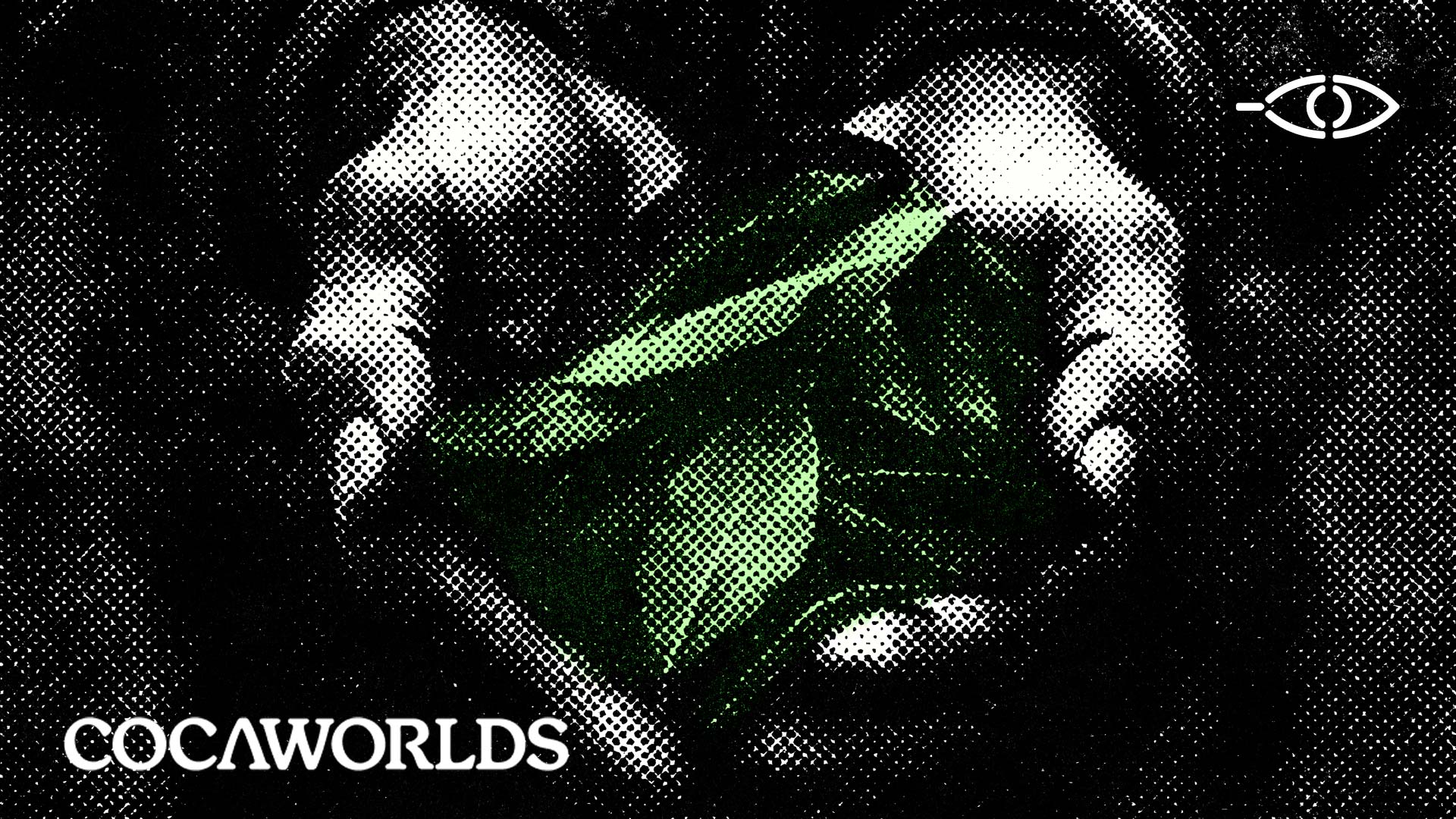Partners: Taller Boricua.
Timeline: July 2023 and ongoing.
Team: Liana Collective (Juan Pablo Caicedo, Angélica Cuevas and Giselly Mejia Zapata)
Approach: Community Engagement, Curatorial Practices, Futures thinking.
Topics: coca leaf, decoloniality, indigenous and Latinamerican futures.
My role: lead researcher, exhibit designer, writer, artist, futurist, curator, community engagement organizer.
Project Statement
COCAWORLDS reclaims coca as a plant of power, medicine and food in the face of the extractivist and punitive violence that has severely wounded its spirit, sickened its territory, and transgressed the lives of Indigenous and peasants communities in Latin America.
COCAWORLDS lines of inquiry:
- Coca-Plant explores coca’s biological and ecosystemic qualities and its agency as a living being. Coca Plant dives into the physical, chemical and sensory attributes of the plant, exploring its diverse uses ranging from food and medicine to its role as a creative tool from which extensive ranges of color and textures arise.
- Coca-Politics exposes and questions the tensions derived from the exploitation of the coca leaf for cocaine synthesis and the categorization of the plant as an ‘enemy’ in the context of the War on Drugs. Coca-Politics critically examines the historical trajectory and the imperial and colonial implications affecting coca, shedding light on the social, economic, and environmental repercussions resulting from prohibition and stigmatization.
- Coca-Wor(l)ds delves into the cultural and spiritual aspects associated with coca, revealing the complex knowledge systems and worldviews linked to the plant. Coca-Wor(l)ds presents a diverse spectrum of origin stories, divinatory abilities, cultural artifacts and mystical connections between coca, language, nature and divinity.
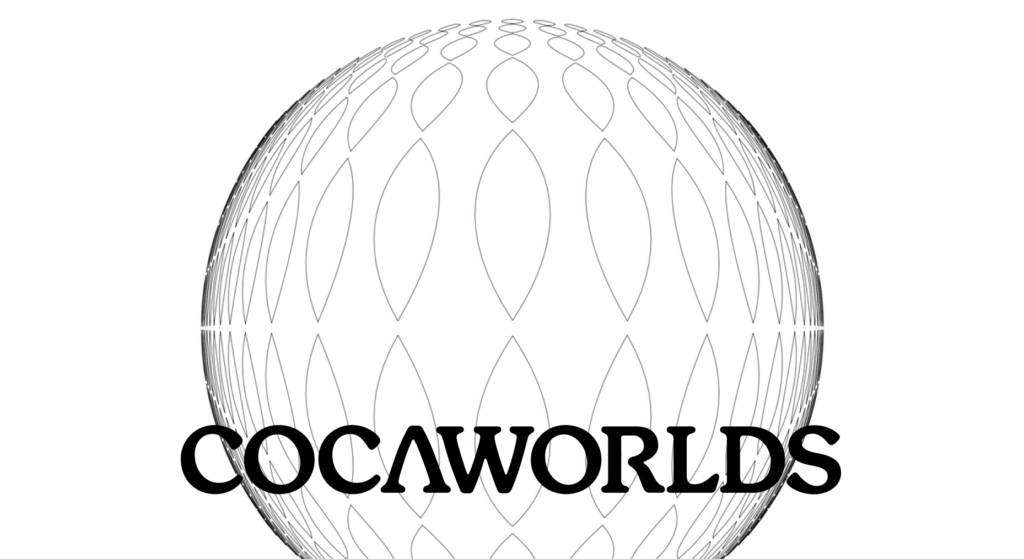
COCAWORLDS has the participation of artists Tatiana Arocha, Pajarita Caucana (Daniela Rubio, Maria Alejandra Torres and Mónica Suárez), Aimema Uai, Sandra Díaz, Andrés Domínguez, Estefanía García Pineda, Miguel Ángel Rojas, Edinson Quiñones, Anyi Ballesteros (Agroarte), NOMASMETAFORAS (Julián Dupont and Clara Melniczuk) with Consejo de Mayores del Territorio Ancestral Kweth Kina & Consejo de Mayores UAIIN-CRIC, Ximena Garrido-Lecca, and Ricardo Cortés.
COCAWORLDS is led by Liana, a collective formed by Colombian artists and researchers Giselly Mejía (Támesis, 1990), Angélica Cuevas
(Medellín, 1988), and Juan Pablo Caicedo (Bogotá, 1991).
Liana explores the interactions between plants and humans and the artistic practices derived from these connections. In addition, the collective facilitates public dialogues around the intelligence and wisdom of plants and defends their mystical, political, medicinal, and nutritional value based on the uses and meanings that diverse diasporic, Indigenous, and peasant communities assign to them.
Projects details
Botánicarte
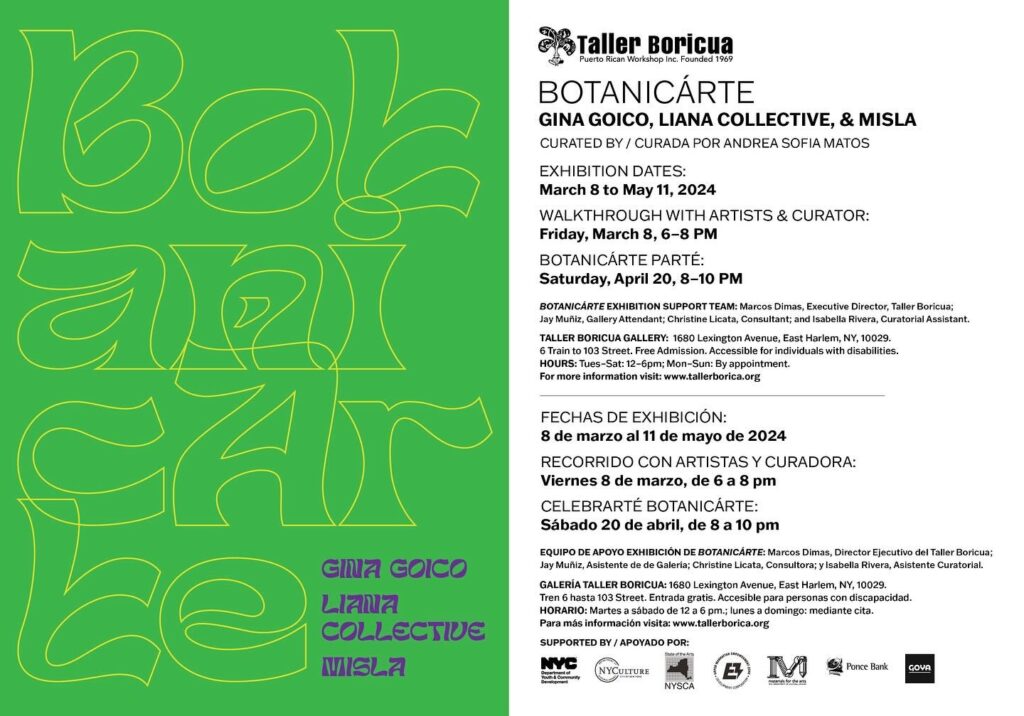
COCAWORLDS opened its inaugural exhibition in New York as part of BotanicÁrte (Curated by Andrea Sofia Matos), an exhibit that explores the role of artists as healers and showcases their unique contributions to integrative wellness and activism. BotanicÁrte opened on March 8th until May 10th, 2024 in Taller Boricua, in Harlem, NYC. BotanicÁrte also showcases artists Gina Goico and Misla.
COCAWORLDS first exhibit features the artworks of Colombian artists: Edinson Quiñones (Popayán, 1982), Anyi Ballesteros (El Tambo, 1998), and the NOMASMETAFORAS collective formed by Julian Dupont (Popayán, 1985) and Clara Melniczuk (La Ciotat, 1991). Through photography, video, objects, and textiles, the artists propose three perspectives for healing historical and collective wounds surrounding the stigmatization of the coca plant.
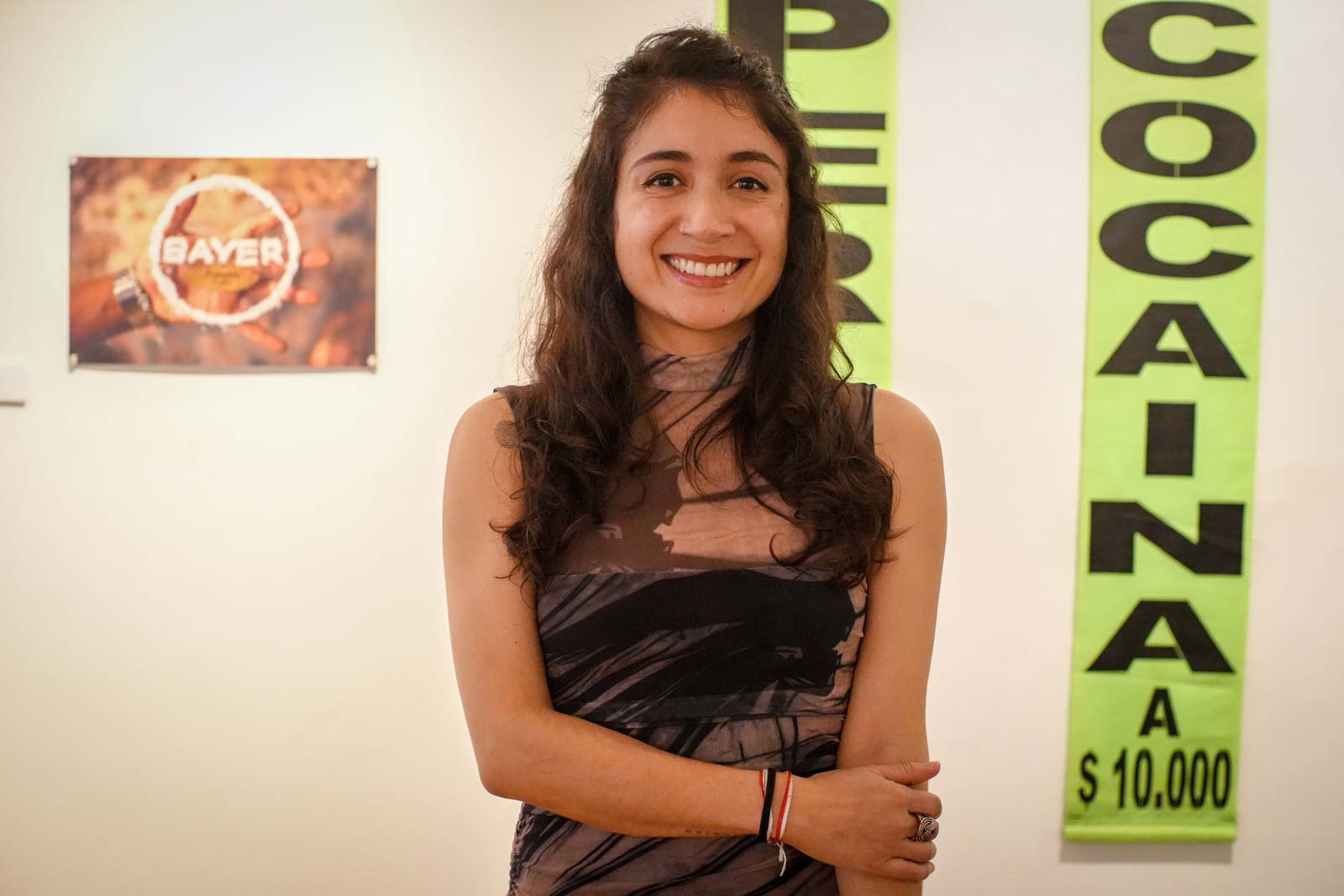
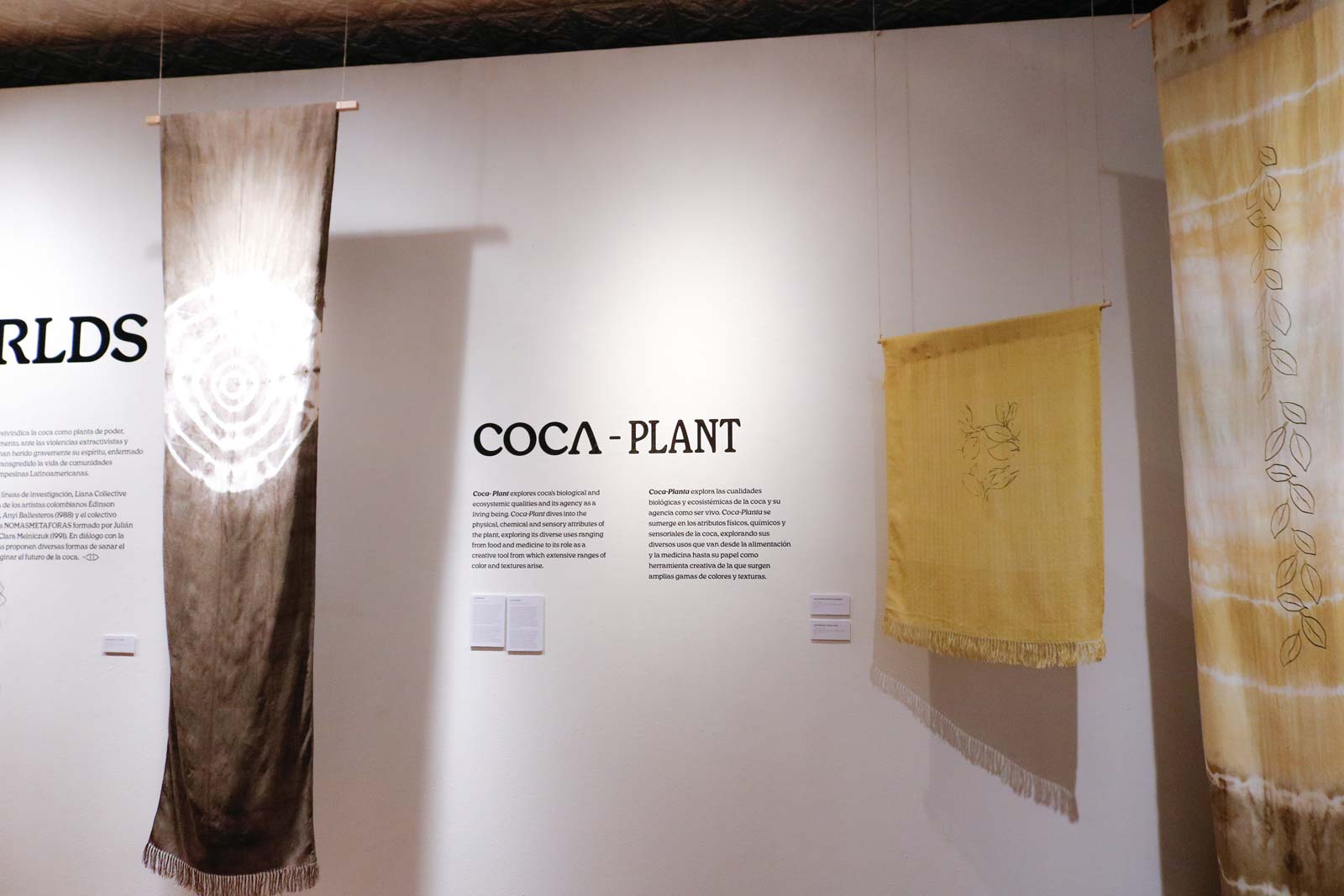
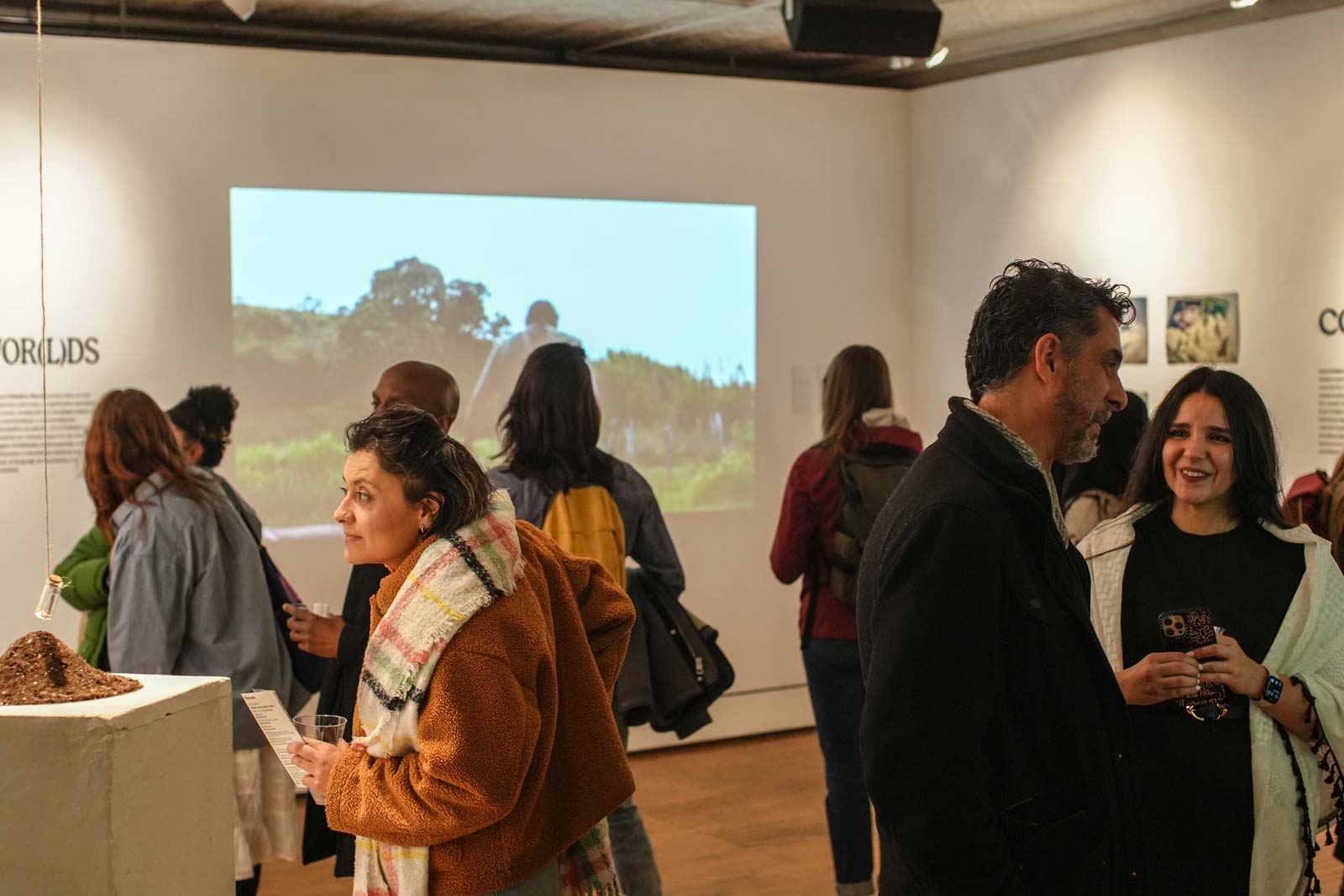
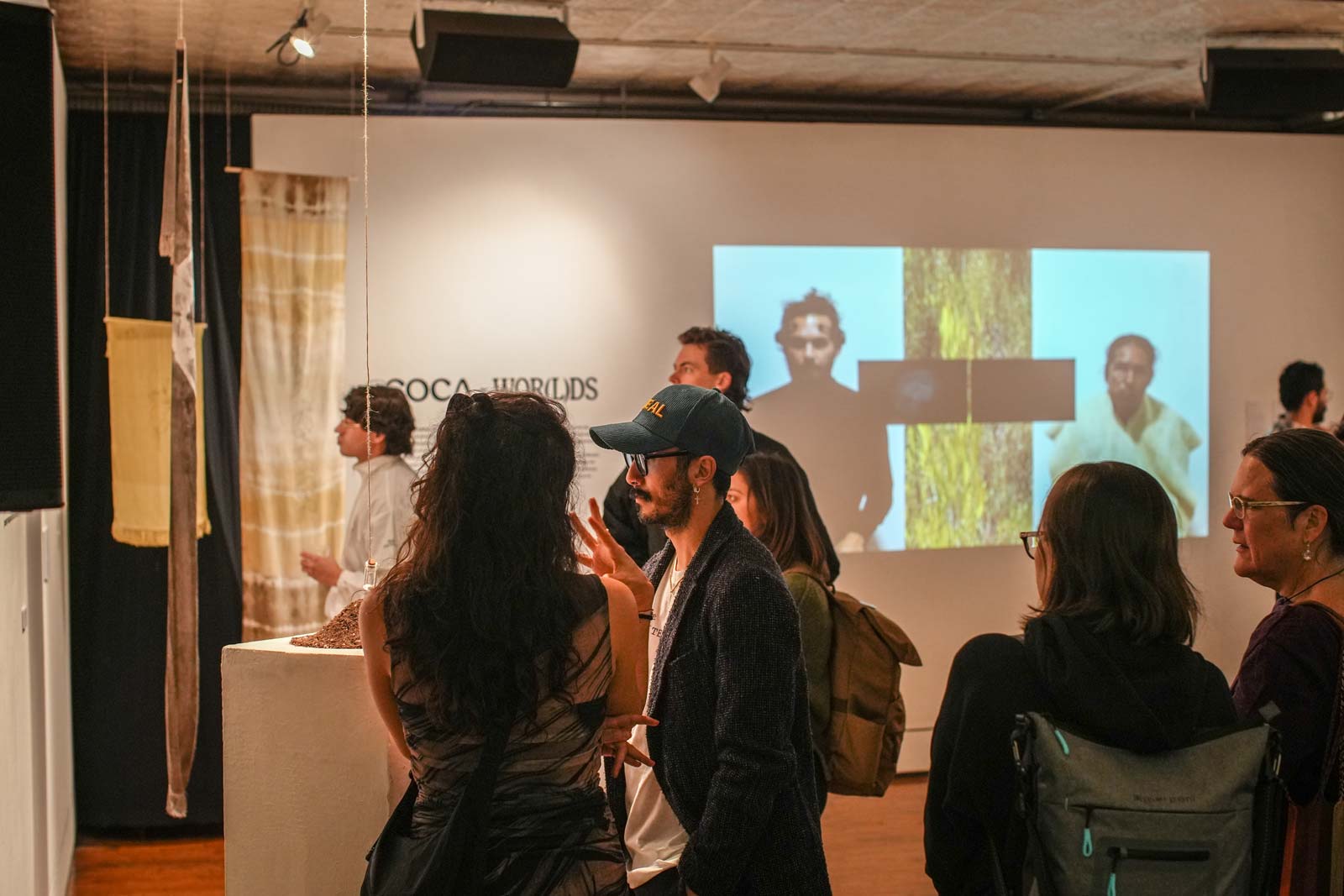
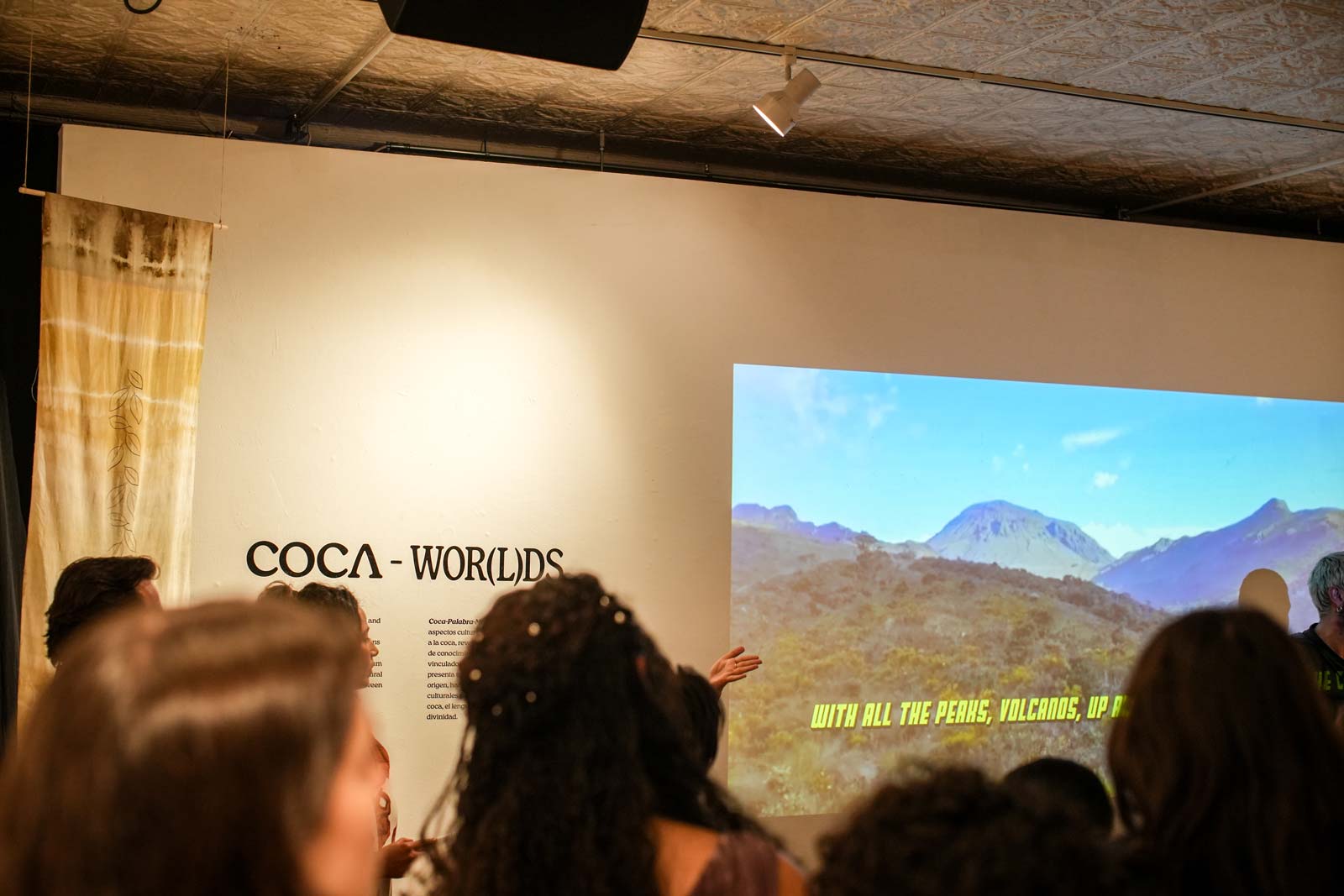
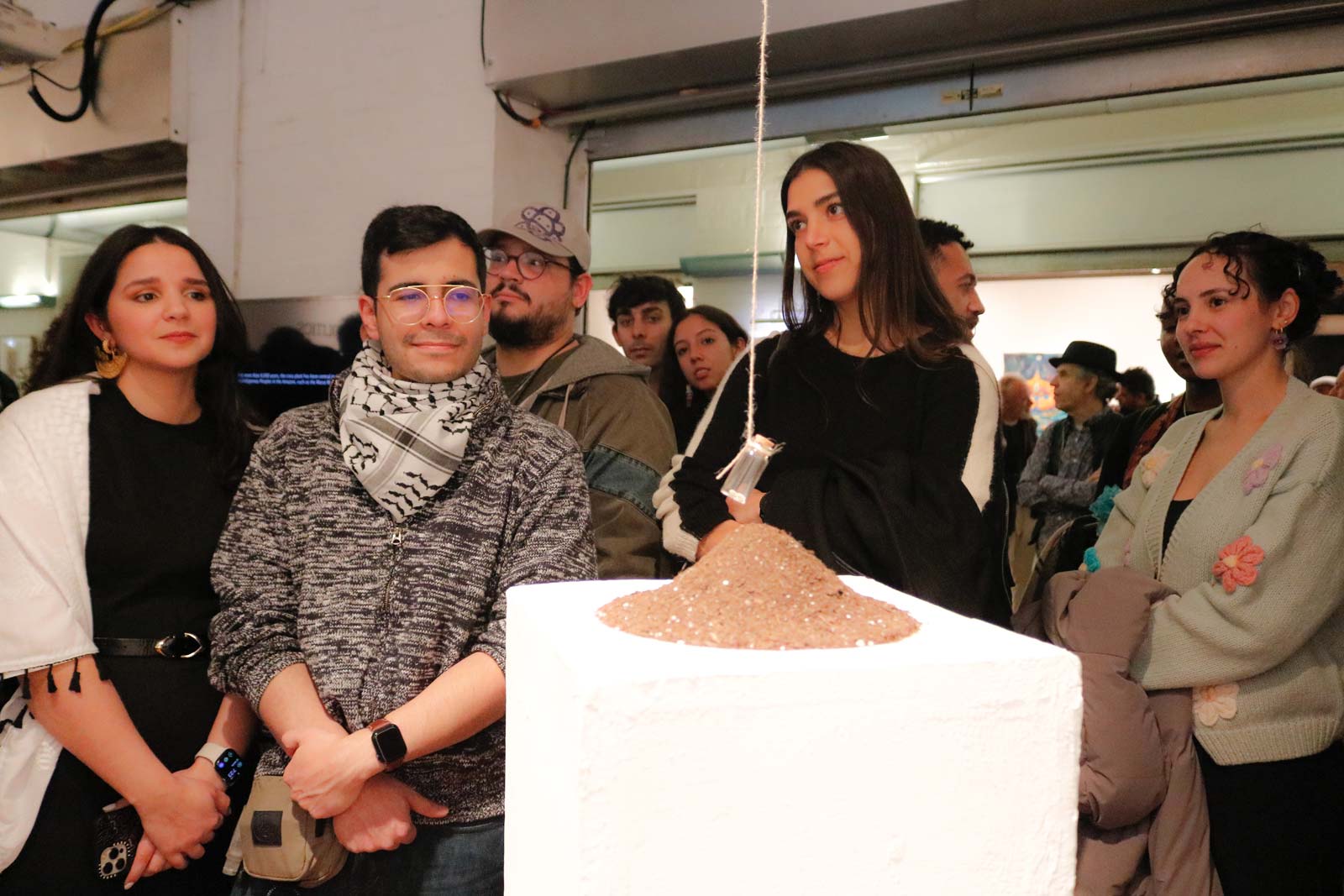
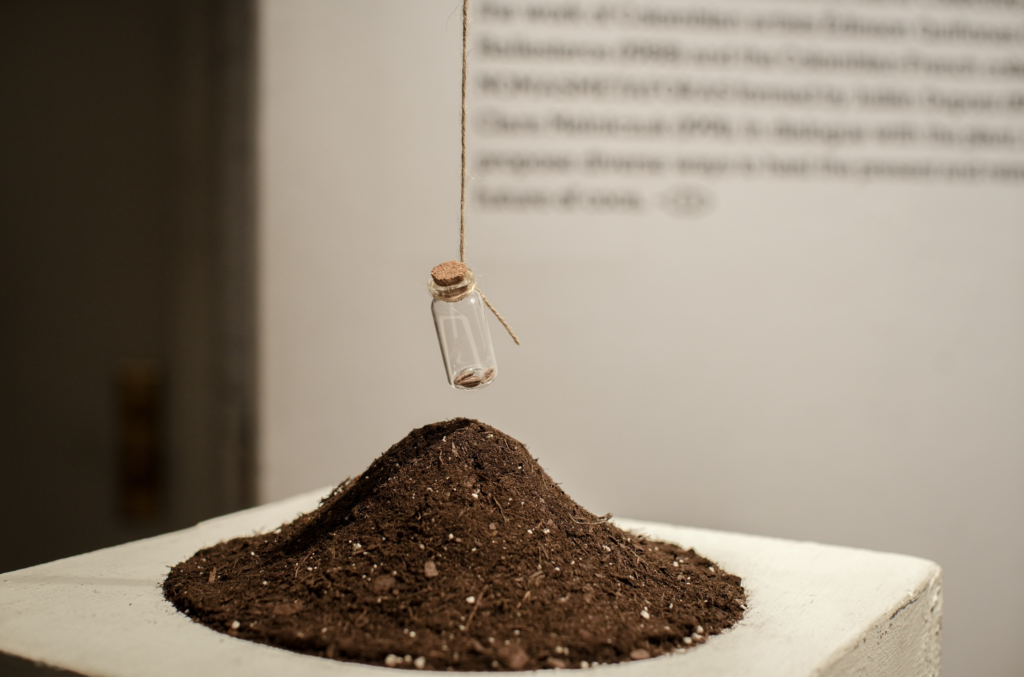
Exhibit design
I did various iterations of the show design, adjusting the artwork and curatorial text to space.
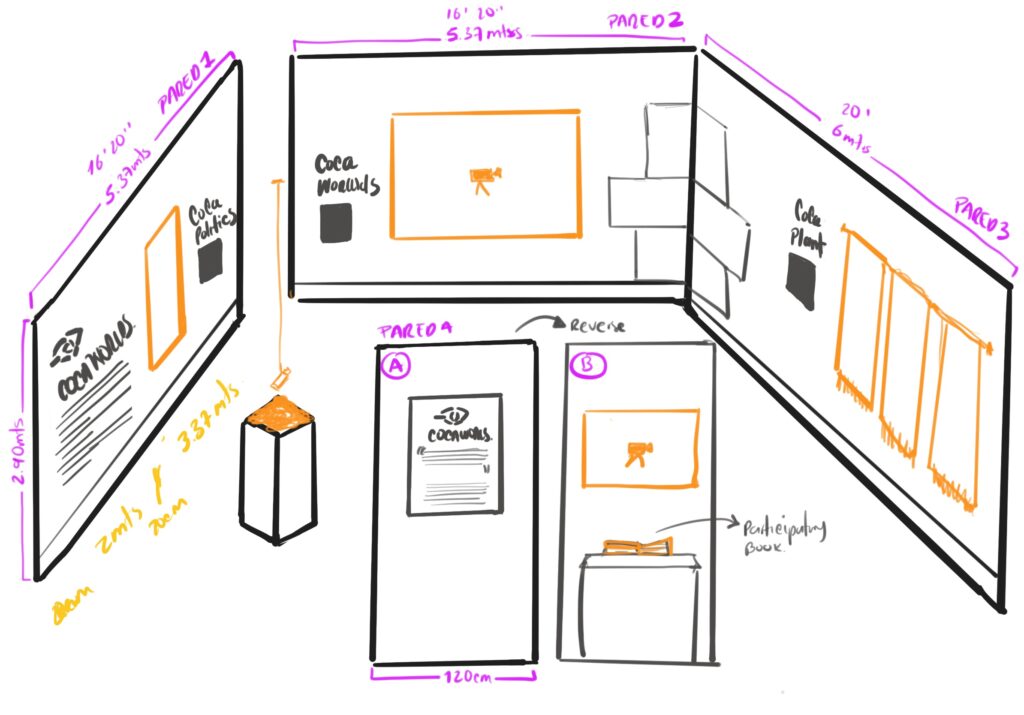
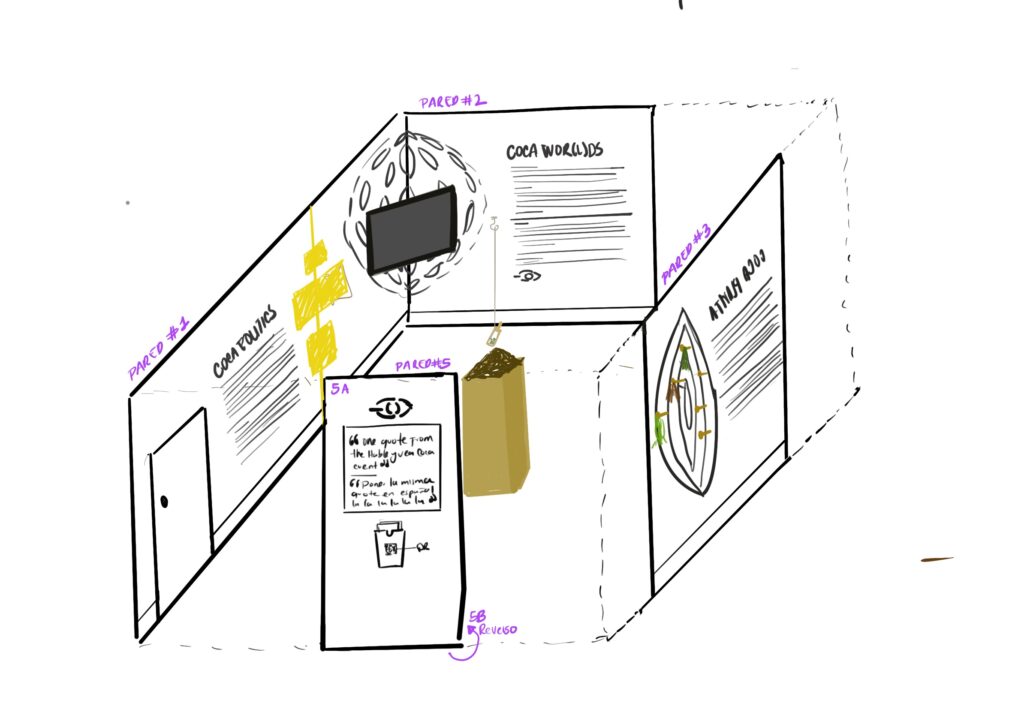
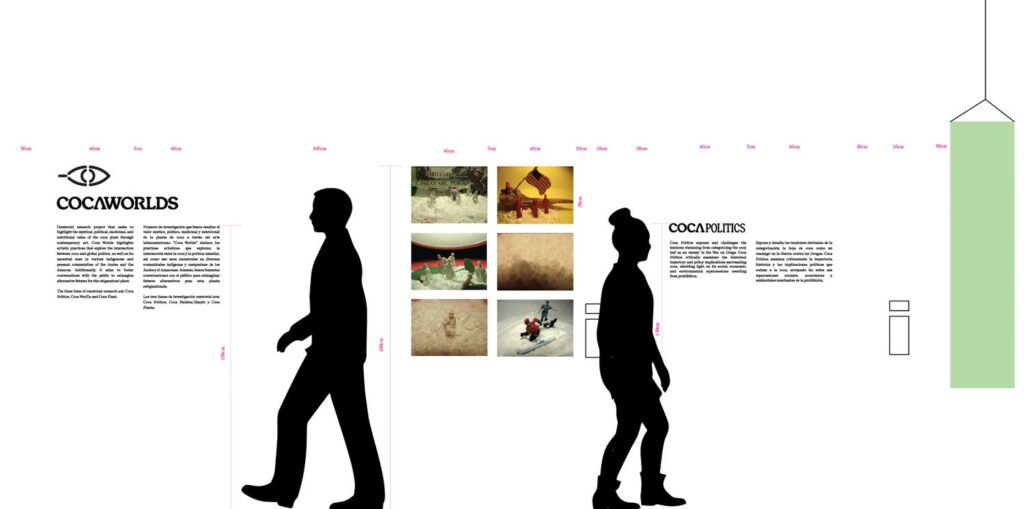
Dialogues
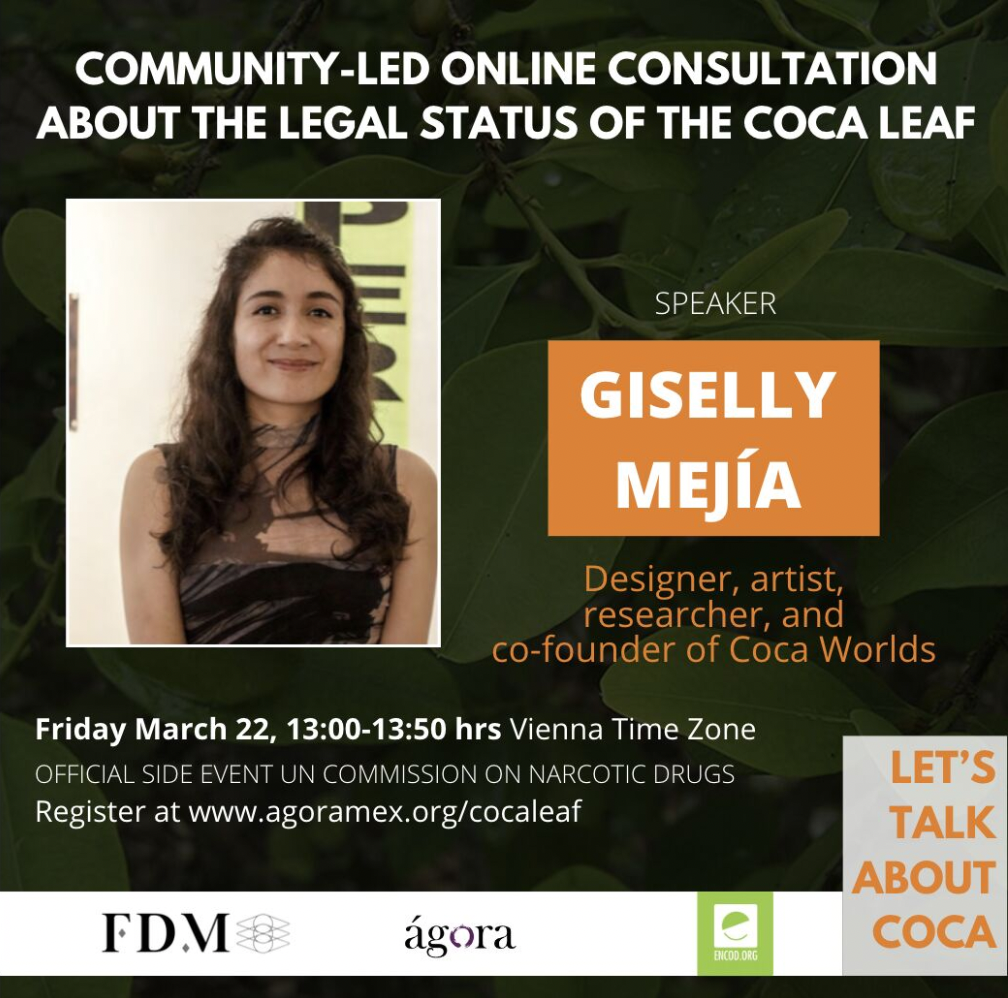
Community-led consultation about the legal status of the coca leaf
Panelists at the side event on the 67 UN Convention on Narcotic Drugs (#CND) in Vienna.
Speculative design of public policy research
Throughout this project, I have conducted primary, secondary, and speculative research to explore the future of the coca leaf. Through the facilitation of workshops and community engagement spaces, I have activated different future methods to ask participants about their relationship with the plant and their desires for change. Furthermore, I’ve explored the societal challenges and opportunities associated with the potential legalization of the plant, as well as the production and utilization of its natural products.
The partial result of this design—and art-led research will be documented in the essay Mama Coca Chronicles: Navigating Ancestral Heritage and Future Narratives published by the Journal of Futures Studies.
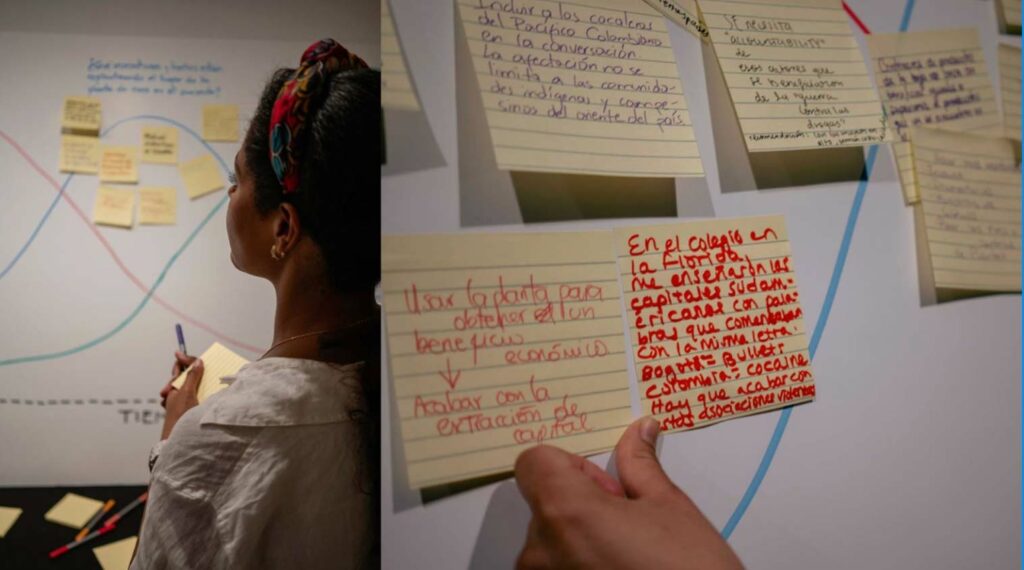
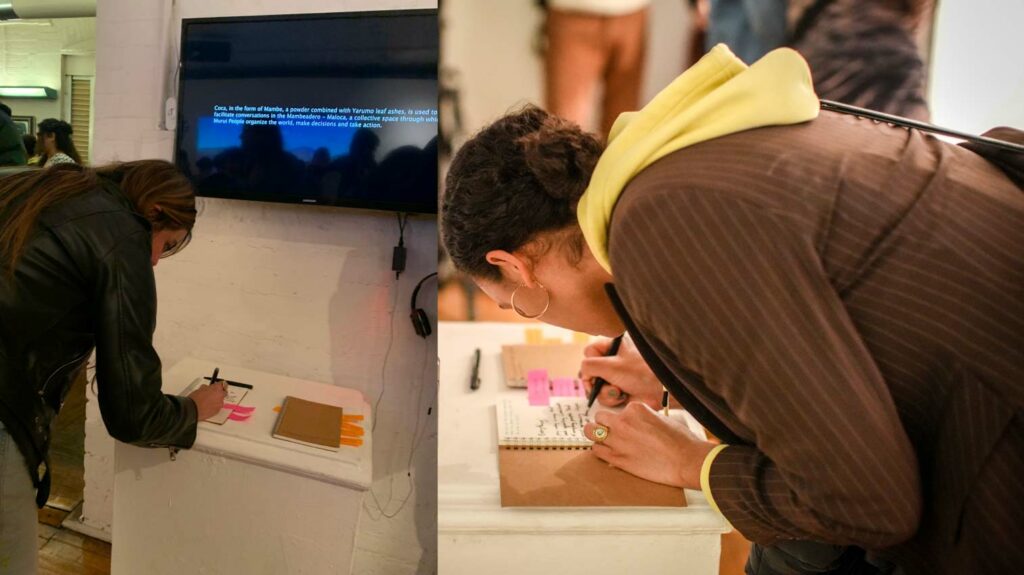
Photos by Alejandro Jaramillo.
